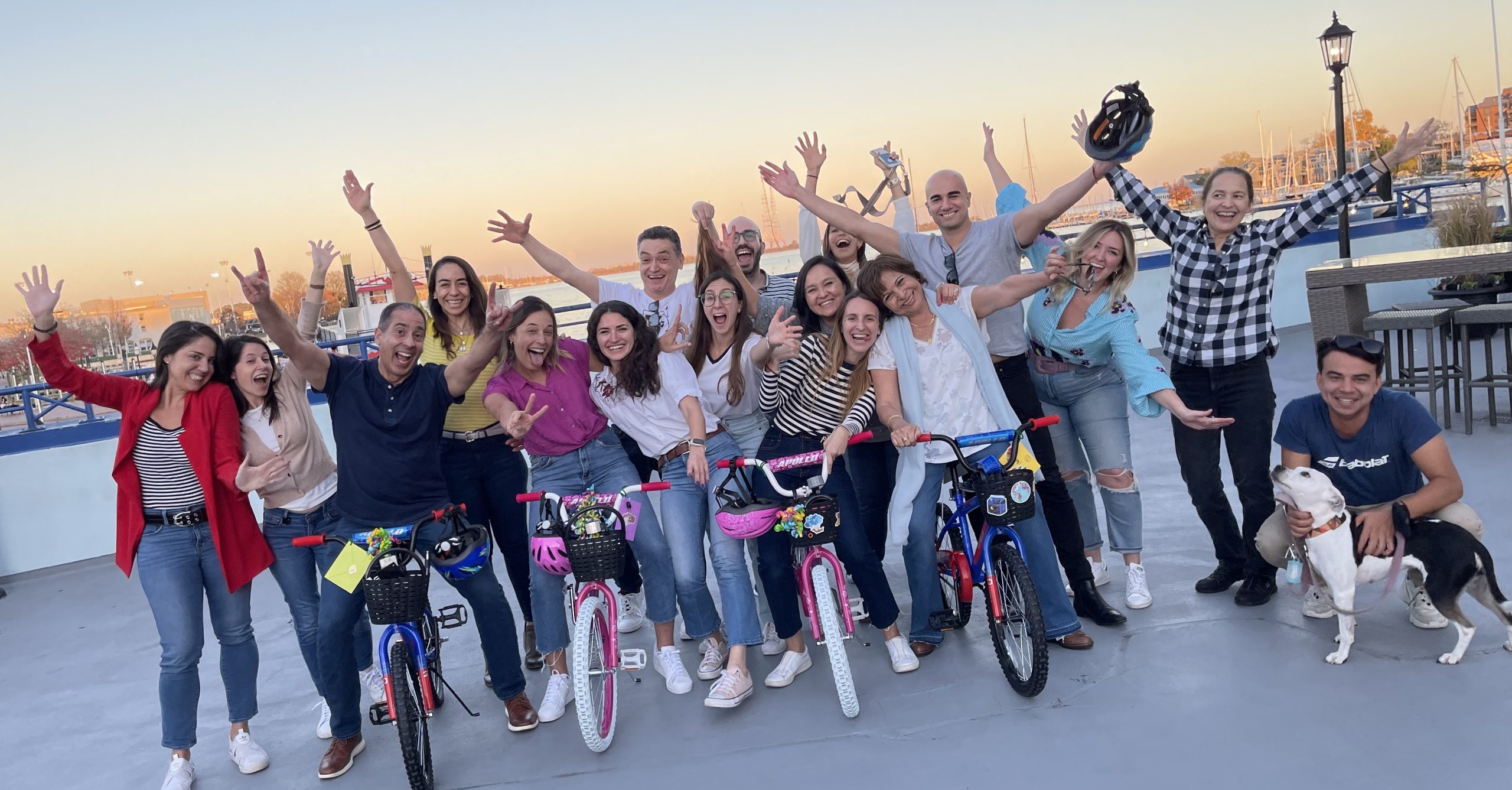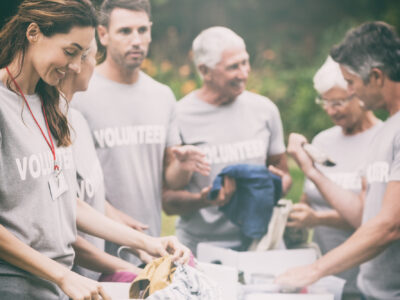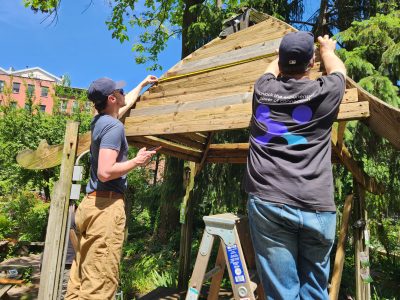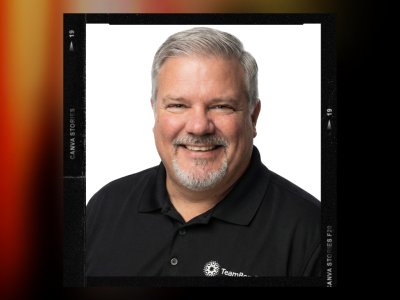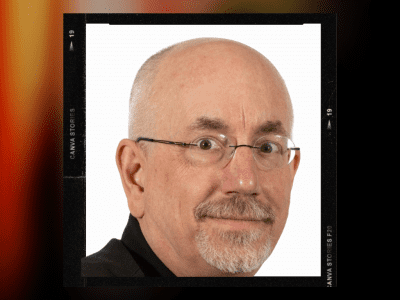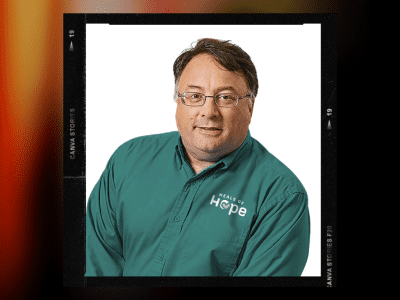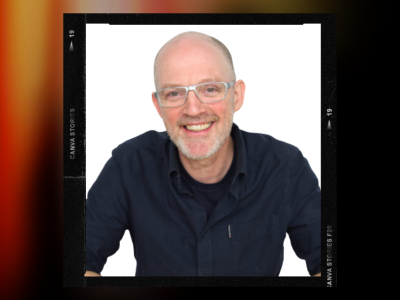STRONG TEAMS DON’T HAPPEN BY CHANCE 
Alex ten Klei and Windshift
Country: Netherlands
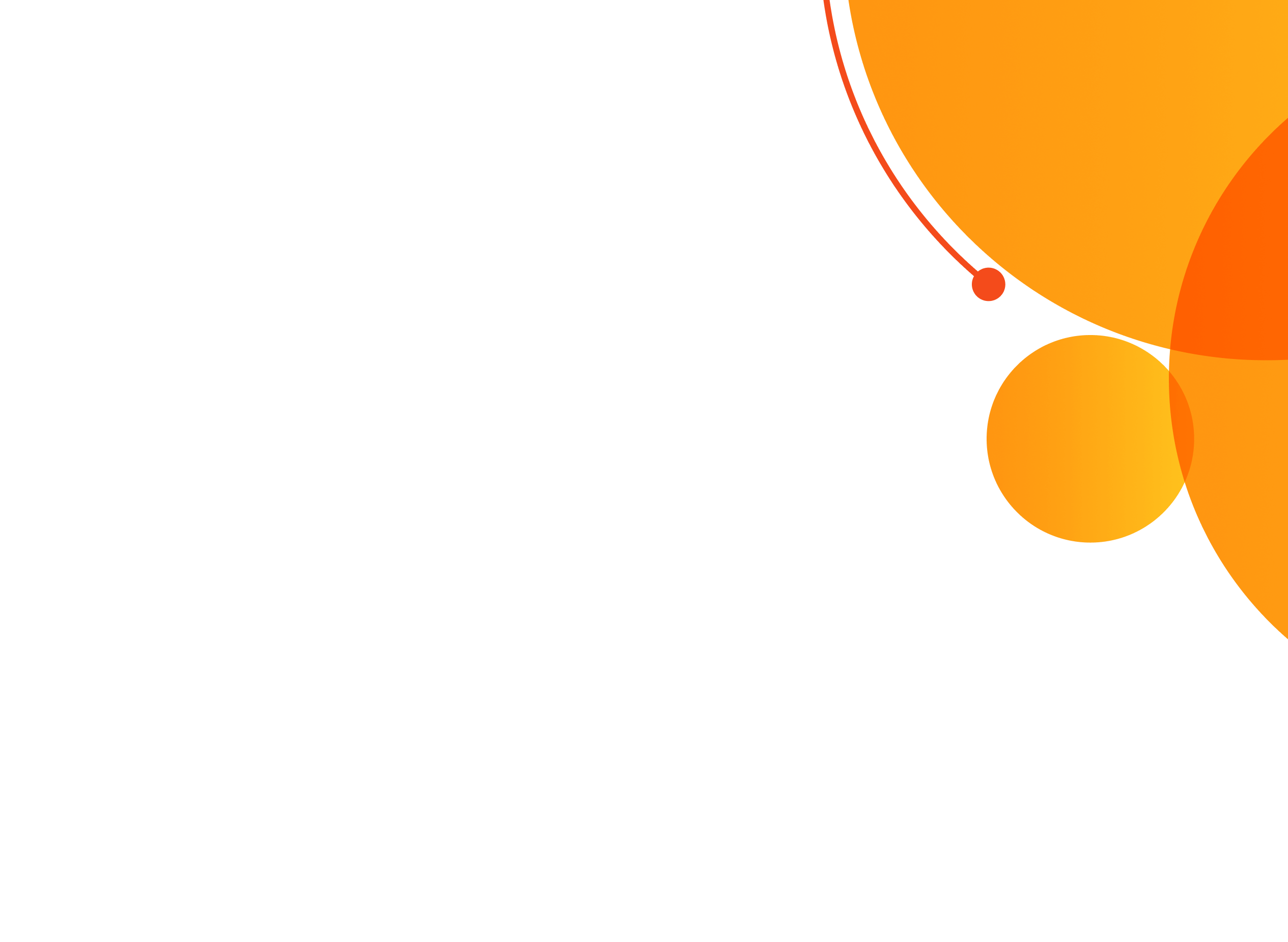
Use the buttons above to listen now.
Transcript - Alex ten Klei and Windshift
Intro
The following is a presentation of TeamBonding providing more than 100 Live, Virtual or hybrid corporate team building activities for companies around the world. Visit teambonding.com to schedule your event now.
Rich, your host
Hello team it’s me your new best friend, Rich Rininsland, and I’m welcoming you to team building around the world, the podcast where I speak to people from the team bonding, team building industry, from all across the globe. Today we have with us Mr. Alex ten Klei. He is coming to us all the way from Holland, from the Netherlands, where he is a part of wind shift. So before we get more into that, I do want to take a second, of course, to give some love out to my supporters. The show is supported by the catalyst team building network. Find out more about the world’s largest network of team building providers at catalyst global.com we also want to thank our friends at b1 g1 which can make your business a real force for good. Visit b 1g one.com to get started now established over 13 years ago, wind shift has become synonymous in Holland with beach related events, but however, they have diversified beyond the beach into large or small scale, fun, experimental, indoor and outdoor event based team building programs, and with me is One of their remote team building facilitators, Mr. Alex Ten Klei. That’s a small group of people I keep trapped under my desk. Alex!
Alex ten Klei
yeah, yeah, that’s a warm welcome. Thank you
Rich, your host
very welcome. Thank you! so please. Let’s start off just tell all my listeners out there a little bit about yourself.
Alex ten Klei
Well, yeah, hi there. Well, my name is Alex, and like you said, I started wind shift about 13 years ago. Back then, it was just outdoor company, or we were doing a lot of fun things on the beach. Started out with with kite surfing. Actually did a course to be an instructor in kitesurfing, and there were not a lot of yeah, good schools at the moment. So I decided to start my own kite surfing School, which was a lot of fun. Was great to do. It’s, it’s, yeah, you’re always on the beach, and that’s perfect circumstances. Well, if the weather’s Okay, yeah, that much time, yeah? Well, yeah, that was exactly the problem, because the season here to do outdoor events in the Netherlands, it’s, yeah, from April to about October. So yeah, that’s a pretty short, short year,which is, which is great if you, if you, if you’re just starting, but yeah, I wanted to expand it a little bit more, so I started to do some other activities besides the kite surfing. Also to be not as dependent on, on the wind, you know? Because, yeah, you need a certain amount of wind for kite surfing. And if it’s too much, you’re, yeah, on the beach as well. You can’t go into the water. So we had a pretty small, short season, and I wanted to do some more programs, more activities, so I started to do them on the beach, which started well, at first, it was just doing kiting on the beach with groups. You know, I could handle more people as well. And then there was a new activity that was launched in the Netherlands, and it was beach sailing.
Rich, your host
Yeah, I was looking over your, your team’s, your your company’s website, and it mentioned sand yachting. What is that?
Alex ten Klei
Well, that’s it. Well, it’s basically that, well, we’re in the lucky circumstances here that we have some great beaches, and especially at low tide, they are very wide, so you need the hard and packed sand, and then you just have a little cart on wheels, so one wheel in front and two in the back, and it’s, yeah, it’s like you’re sitting in a boat or in a car even. And then, yeah, with a with a sail on your on the car, on the boat, yeah, you can just sail on the beach. It’s a lot of fun, and it goes really fast,
Rich, your host
fabulous. Now, how did you get into team building? What was your What was your main idea that got you started on this
Alex ten Klei
that goes back a little bit, a little bit longer. This one I was in high school. I started teaching sailing at the sailing school, and that ignited, ignited also, yeah, the team building, or at least trying to have to learn while you’re having fun. Is that what we used to do with with the kids, when they had difficulties, when when the weather was not so good, or they had trouble learning sailing. What we did was throwing games. We started gamify the learning. And I’ve always remembered that, and found it fascinating how you can influence people’s behavior by throwing in games. If you throw in fun element, it goes a lot faster, it’s easier, and yeah, they’re having fun doing it. So that’s when it that’s what that’s also why I started to the kite surfing, and after that, the land charting. And from there on, it started to get to become more serious, and the games became more serious as well as I started to moving away from the beach. That’s when I joined the catalyst network, because they. Some amazing games where it was not just about the fun, but also about developing skills, about the learning part of it, right? So that brought it back to the kids, because basically what we do is still the same, only there’s a different, different reason why we learn now you’re doing it for more grown up kids, yeah, yeah. But funny thing is, if you throw in games and competition? Yeah, it’s just like you’re playing with the kids again. Well, let’s, if we can, let’s get into that a little bit deeper. What is it about game playing that you think helps actually bring teams closer together, that actually makes people a more cohesive team? Well, for a long time, I thought that that it was competition part of it. You know, when it’s always fun competing, right? It’s always fun when you’re, yeah, when we form a group, and you’re working with a group towards a specific goal, and if the goal results in a win in the end, it’s even better. So for a long I thought that that would, that was part of it, a big part of it, but yeah, during years, I also found out that when you have competition, you have a winning team, but that’s only a small part. There’s only one team that wins, and that also means that everybody else is losing. So how do you keep them engaged as well? You know, because it’s, yeah, it’s fun to win, of course, but you also want the people who are not winning. You want to keep them on board. Yeah. And that’s also what a lot of the programs and activities that I used to do on the beach was about competition, and more specific, physical competition. So at the beginning, you could all already tell who’s Yeah, who was probably going to be a dominant player, and who would be in, who would be in the winning team. That’s also one of the reasons I wanted to develop more into other games where physical advantage would not bring you the win, right? So it was more about the collaboration and the team that got you to the win. And that’s what a lot of the catalyst programs do. And even more specific, they’re not all about competition. So I kind of moved away from the idea that competition was one of the main should be one of the main aspects of a team building game. And now more in the line of, you know, focus on a common goal and have everybody work on that goal together, because that drives more engagement, and it drives some more deeper satisfaction when you’ve reached that goal than just the win.
Rich, your host
Well, can you give me? Give me an example, if you can tell me a game that you play where you can actually see a team becoming more cohesive as they play?
Alex ten Klei
Well, one of the programs that we do called beat the box. It’s kind of a escape style game, right? And now you can, you can really tell the difference the game works that every group is divided into smaller teams, teams of about six, seven people, and they all have a big box on the table. It looks the same. So as soon as you divide a group into teams and you put a box on that table, they’re in competition. We don’t have to tell anything. It’s just, you know, they want to beat the other teams. That’s probably how our wire, something like that. But it goes automatically. And then the idea is they need to find a hidden code. They have 90 minutes to do. So we give a few hints on how they can open the first box. And once they’ve done it, there are four smaller boxes in there with bed locks. So, you know, it’s, it’s, they’re not done when they’ve opened the big one, right? That’s sorry, yeah, that’s really only the beginning, getting in that first box, yeah, yeah, yeah, yeah, yeah. So once they’ve opened it, they’re okay. And then, ah, there’s more, there’s more. And then after a while, they get stuck. They can’t continue their quest. They can’t continue opening the boxes. And then they need to realize that it’s not competition against each other, it’s just competition against the time, because to open or to get the hidden code, they need to collaborate. So there’s a turning point in the middle of the game. At first, it’s competition, and in the end, they realize, okay, we need to work together the first stage. When they when they discover that they need some information that the other teams have, they start to walk around and they look to find whatever they need. That’s the first stage, right? But it’s not collaboration yet, right? Because you’re just trying to get what you need, sure. And then when the game progresses, they figure out that, okay, it’s not just about getting what I need, but it’s also giving what I have. Oh, that’s and that’s what, that’s fascinating, because then you’re really going towards collaboration and towards, you know, a common goal. It’s not just about getting what you need, but it’s also getting what you have without getting a result back right at the start. And that’s a fascinating concept. And so, you know, it starts with competition, and it ends with everybody working together to find the specific code.
Rich, your host
Fantastic.
Alex ten Klei
And it’s, it’s fascinating what happens in the group, because there are a lot of people. People who drive on the first part the competition. You know, that’s that’s what they’re they love the competition. They love to compete. They love to be faster than the others. But there are also a lot of people who love the second part of the game, the collaboration, working together, sharing knowledge. And that’s all that that’s great for, for feedback in the end, you know, because I always ask him who loved the first part of the game and who loved the second part of the game, and that gives some really nice information about the team, about the people who you’re working with, and it explains a lot of the behavior as well. Because if you know that people in your team need competition, right? It explains a lot of behavior, you know, you give them a goal, and they go at it. But there are a lot of people who, yeah, you can give them a goal, and nothing happens because they’re more wired to drive collaboration, to drive working together. Very cool.
Rich, your host
All right, Alex, and you actually speaking of driving collaboration, I have to actually pay some bills over here. So give me one brief second while I tell my team about catalyst team building, network an association of team building providers with representatives in over 90 countries speaking more than 20 languages, the catalyst network is widely regarded as the voice of the team building industry. Network members share resources, best practices and business opportunities. Catalyst partners are learning from each other and pushing the boundaries of what is possible in team building catalyst network members share a common goal of creating highly relevant, socially responsible, good value experiences for their clients. For more information, please visit catalystglobal.com the catalyst team building network, the world’s largest network of team building providers. All right, Alex, we’re back now. So that’s a fantastic evolution that you’ve had there, from starting off with outdoorsy, very competitive events to more completely interactive, all encompassing events. Can you Yeah, yeah. It’s a fascinating journey. And it’s yeah, it hasn’t finished yet. I guess it’s great. Yeah, yeah, continue to learn. So that’s that’s one of the challenges. Well, tell me about team building in Holland. How unnecessary is that? Where you are?
Alex ten Klei
Maybe need to specify the what team building means. Right over here, a lot of programs and activities, even the outdoor programs that I used to do a lot are called team building, okay, which, in fact, they’re not. You know when, when you’re team building and has something to build, to create a team and to become better as a team. Right? Now, if you do highly competitive game, I mean, it’s, it’s great for team spirit, but it’s not necessarily to become a better team,
Rich, your host
right? And as you said, there’s a winner and a loser. That’s not really what you want for a team,
Alex ten Klei
exactly, and that’s also what, yeah, sometimes I ask clients, you know, when they come to me and they say they want to do a game, what do you want to achieve? We want to become one team. We want to play a game where everybody can can be a part and know to collaborate together. And then when we go into, okay, what game do you want to, want to play? It’s usually a competitive game. So, hey, yeah, that’s kind of a contradiction, right? Improve your team. You want to work better together, and you’re doing competitive game.
Rich, your host
Do you think that was just, do you think that was just something they knew? Do you think they were just like almost pre programmed to expect that kind of thing.
Alex ten Klei
Well, that that’s what, what happens all the time, or all the time around is, you know, all 99 out of the 100 games you play, it’s about winning or losing. You know, we’re brought up to be competitive, right? If you’re in high school or any school or any class, it’s always, you look at the top students, the guys who are winning, and that means that everybody else is losing. So all around all the games, and name me one game that’s not competitive, sure. Quite difficult, right, sure. So yeah, we’re kind of programmed to be competitive. But on the other hand, in a company, you want to have the opposite. You want people to work together. So that’s some yeah, sometimes nice discussion that I have with clients, if they want to do something, it’s Yeah, competitive game. How well? How difficult was it in the beginning to make them aware of that, that altering of the perspective, like when they were pitching to you, when they were saying to you, they want something competitive, and you were like, wait, I have something better in mind. How do you make that go over? Well, if I get the chance to talk to them, and if they’re on the phone, then I can explain it, you know, I can give some examples. But if you, if you talk about, okay, how does a team building look like in your country? Yeah, a lot of people perceive them, the competitive games, the outdoor the fun games, which is, I mean, I don’t want to downgrade them, because they’re a lot of fun to do, but it depends on the goal that you have and what you want to achieve. If you want to have an afternoon of fun, then those games can be the thing for you, you know. But if you want to really develop your team, it’s not usually. So that’s the status of team building here is that there are a lot of companies who. Are, yeah, who are designed to do the competitive games, outdoor games, right? But they call themselves team building, right? So that’s, that’s quite a that’s a bit of a challenge here that there are so many companies who say that they’re doing team building events.
Rich, your host
So let’s talk a bit about some of your favorite events. What are some of the favorite things you like to do
Alex ten Klei
of the team building events? You mean, yeah, need to dig into, in my memory, it feels like now everything has shifted into online games. So the time that we did the real the live events with a lot of people in the same room, that seems like ages ago, right? In fact, it was, yeah, only a couple of months ago, but it feels like a lot longer my favorite games. They are the ones that lead to they’re the collaborative games. So the one that I mentioned to be the boxes is one example, but another one is, I think, big picture. That’s where you create a masterpiece. But not just one masterpiece, one canvas, the whole team. The whole group is divided into teams again, and they work on several canvases. And if you put all the canvases together, you create one masterpiece. So it can be we did one little over a year ago where we had 500 people participating into one giant canvas. That’s one of my favorite ones. Yeah, I think over 50 campuses were put together into one giant masterpiece.
Rich, your host
Excellent. Now we, I’m sorry if you don’t mind, I do want to shift gears for a quick second, sure. Let’s talk about charities. Do you do any sort of charitable work?
Alex ten Klei
Yeah, we work with Well, I heard you mentioning the buy one, give one at the beginning, and, yeah, we work with them as well. Okay, so what we do is, each program that we run, we end with a certificate of gratitude. So if the groups that, let’s say there are 200 participants in the group and the winning team, will get a certificate. And it says something like, you know, it would have been great if you would celebrate your victory with a nice bottle of champagne, but that’s not going to happen. Instead, we’ve chosen to help children in India with their education. And because of your presence here today, 200 children will get access to an E learning system for a month.
Rich, your host
Fantastic.
Alex ten Klei
Yeah. If you close and you close up an event with something like that, it’s, yeah, it’s becomes a lot more meaning. Goosebumps.
Rich, your host
Yeah, that entire the few hours they’ve spent with you, they’ve actually have even realized that they’ve been doing so many good things. Do you have any specific charities in Holland that you like to work with?
Alex ten Klei
We used to work with charities in Holland, but now we shift it all to buy one, give one. I mean, I like the idea of local projects. So to have local projects here in the Netherlands to work with. But on the other hand, the buy one, give one, they are supporting local projects as well, but then yeah, all around the world. So we decided to change and work completely with buy one, give one, excellent.
Rich, your host
Well, with that in mind, let me take another second if I can, and tell everybody about b1, g1 which can make your business a real force for good. When you’re part of b1, g1 you bring new purpose, meaning and relevance to your business by making giving a core of what you do, unlike conventional giving models, b1, g1 helps small and medium sized businesses achieve more social impact by embedding giving activities and their everyday business opportunities to create unique giving stories. Every business transaction can impact lives from as little as just one cent. So please visit B, 1g one.com to get started. B1, g1, business for good. All right, Alex, let’s go talking more about you. Wind shift has been in existence for 13 years. You’re the founder of it. You’ve led many events, I assume. Do you? Do you have any favorite memories of your own favorite events? Yeah,
Alex ten Klei
well, last year, I think it was around this time of year, we had the opportunity to go to Japan for for an event. Oh, lovely. Yeah. That was, that was quite special. It was a Dutch client, but they had offices in us, in Australia and in Japan and in the Netherlands, of course. And they had their annual meeting in in Japan. So they went three days to Japan with their whole management team, and they were looking for an event. And, yeah, they didn’t know, didn’t know the Japanese market of team building very well. And we have been doing business with that client for on previous occasions. So, yeah, they invited us to go to Japan.
Rich, your host
Excellent. What event did you lead for them?
Alex ten Klei
We did the infinite loop, which is an event where you wear virtual reality headsets. Nice event, and it’s all, yeah, it’s kind of about communication. And this was a company, they were working in different areas, in different areas across the globe, and they wanted to improve their communication. And with the infinite loop, the nice part is, day to day, life and work, you come across numerous barriers. Can be age, language, time zones, cultural differences, right? With this game, you put in a new barrier between virtual world and the real world, and it’s about getting information across from virtual world to the real world. But how you deal with that barrier is almost the same as you would in your day to day barriers. So does some people make fun of it, make a joke around it. Some people get frustrated, some people fall quiet. Some people take the lead all you know, and that all happens within one team, and you make it, yeah, visible. So yeah, we were asked to do that in Japan for that group, and there was, yeah, was an amazing event. Was special to land in Japan and to do an event there with your kit, with all the virtual reality headsets, get them through customs. Yeah, that was quite special.
Rich, your host
Fantastic. But now let’s actually talk about, talking about virtual reality Holland and the world in the midst of a pandemic right now. How are things going over there? First off,
Alex ten Klei
oh yeah, with the with the pandemic, well, it’s it’s going into the right direction. Now, things are starting to open up. We’re allowed to do events up to 100 people now. Oh, that’s great. And, yeah, from the first of September, and maybe even sooner than that, we’re allowed to do more than 100 but you still need to keep physical distance in place. So that means over here, it means one and a half meter apart. So yeah, it’s still different than what we used to do with defense, but at least it’s, you know, it’s something positive. Again, we can look at this. Yeah, it’s opening up. So that’s really the good news, yeah,
Rich, your host
but the world, I mean, let’s face it, the world has changed just these past few months. People getting used to working virtually. What kind of successes have you had switching to a more virtual market?
Alex ten Klei
Yeah, we had to switch completely virtual because, you know, all life events were were canceled, and all the confirmations that we had in the agenda were gone. So our agenda was completely empty. And that was, yeah, great being part of the catalyst network, because there were around 50 companies who all faced the same difficulties. Yeah, but they are not competitors. You know, we’re running the same, you know, the same problems. We’ve got the same type of markets, but we’re not competitors. So we can share, well, almost everything, and that means also product development. So we had some great partners developing new products almost instantly when it when it happened. So, yeah, quite soon, I think within three or four weeks, we had about seven or eight events that we could do online well, like what, give me the example, the program that I mentioned before, the infinite loop, and what we used to do with with virtual reality headsets. And now the Tunisian partners, they’ve developed a program that we can do on web, web based version. Oh, great. So yeah, it’s different than wearing the headset. But what happens here is, one person enters the virtual world. They can see something different in the in on the web browser, so they it looks like they’re in the virtual world, and the other players will get some additional information. So it’s still about sharing information. It’s about communication barriers. So the essence of the game has stayed the same, but now do it online and some other programs as well. But thing that they have in common is that we’re trying to split the information that’s available to the team, because especially you probably noticed in the online meetings, it looks like everything’s the people who take the lead in an online meeting, it looks like they’re even more present than in a live meeting, okay? And the people who are bit more laid back they don’t usually take the lead. Looks like in online meetings. That even increased as well or decreased. So in Online team building events, we try to break that routine, and the only way to do that properly is by dividing the information. So it’s not that we give all the information to the group, because then you would still have those processes in place. You know, you already know who will take the lead and who doesn’t, but if everybody has different information and they need to bring it into the game in order to reach a common goal, then you get some true interaction from everybody. And that’s it looks like that part, to get everybody involved and through interaction, I wouldn’t say it’s it’s easier than in a live game, right? But it is of the advantages that I never thought of before doing the online events we’ve been thinking about online events. And, you know, I think everybody knew at some point you need to work more online, collaborate more online, but you think of it driving to the next. Next meeting, you know. So
Rich, your host
that’s fantastic, though. I mean, that’s, that’s great. I love the fact that it is still focused on the the all inclusiveness aspect, because that’s so very important, especially nowadays it is, yeah, yeah.
Alex ten Klei
And that’s, that’s also one of the main USPS that we sell the games now the online games is that you do get the inclusivity and the engagement that you want, very good.
Rich, your host
So now tell me, Alex, dipping into you more of your personal memories. Do you have any sort of silliest moments from an event that you want to share with us?
Alex ten Klei
The silliest moments, I’ll be honest with you, it’s one of my favorite parts of the show, so I always try to make sure I put time in for it. Well, yeah. Well, there are always those, those typical moments when you go to an event and you forget something or that you arrive on the event, you just, you want to start the event, and then you forgot some, some essential tools. So yeah, those are the typical moments when you really need to improvise. And that’s, well, it’s not fun when it happens. But sometimes those type of events, they turn to work out pretty well. I remember one time we did we wanted to go to an event. Was a tablet based event, and yeah, we forgot the tablets, which are quite essential, key element to the game.
Rich, your host
How do you get around that? What was your work around for that?
Alex ten Klei
Well, well, we first, okay, there were no no tablets, so we tried to do it on the mobile phone. So we had everybody tried to install the program or the app on their mobile phones. But what’s for a company who where security measures did not allow to download an app? So okay, that didn’t work, but it was the finish of a project, and we knew that was the so that it was a closure of a project that working on that project for one and a half year, and this was a closure. So it was an important moment as well. But for the game, they needed the tablets, and we gave them a box toolkit, and they needed the toolkit to do different challenges, which were were on the app, right? So, okay, the download on the on the mobile phone, that did not work. So what we decided to do was throw the program around and say, okay, you’ve done a project here. What we want you to do is create kind of a chain reaction. So every team has to create a memorable event from the last one and a half moment, one and a half year. And you need to link them all together. So we have one chain reaction, one chain throughout the whole the whole room nice. And right before we do the reveal, or before we set the chain in motion, everybody can have three minutes to explain their well, most memorable moment about the event or about the project, and worked out brilliantly. It was, it was a big, big hit, big success.
Rich, your host
Good for you.
Alex ten Klei
Well, yeah, but it was close call at the moment. Oh, sure, that
Rich, your host
sounds like a real we’ll be going nail biter over here. Well done, though. Yeah. You just want to, you know, open the little door in the ground and just fall through
Alex ten Klei
- But it turned out great. Client was very happy in the end. Said, Okay, yeah, there were some struggles, some some troubles, but yeah, they loved the way that we improvised and that we came up with with with a plan B. That’s great.
Rich, your host
Now let’s talk about, if you don’t mind, your personal life, you’ve been with team building, you know, in some regard or other, for most of your life. How do you use that in your everyday world? You have family.
Alex ten Klei
Yeah, two kids live together with my wife and yeah, not far from the office here. So we have, yeah, actually, great life.
Rich, your host
So how does team work influence especially, let’s say, for the past few months you you’ve been in lockdown with your family. What do you do to keep the cohesion of the team of your family working?
Alex ten Klei
Well, last couple of months, we’ve, we’ve had a lot of tryouts for new online games. So I took, I took some of them home.
Rich, your host
That’s great.
Alex ten Klei
We Yeah, yeah. Well, we tried them. But also what we did was one game we translated into into Dutch pretty quickly so our son could play with his kids. Because, you know, he couldn’t go to school anymore, but he still wanted to connect with his with all the kids in his class. We translated the game and we played with his class. So, you know, that’s, yeah, there’s always a way to fight to to introduce the games like, you know, when we started talking was about the games that what we did at home as well,
Rich, your host
amazing. I think your son is getting into team bonding, even though he doesn’t realize it.
Alex ten Klei
Yeah, yeah. Well, if I ask him, what is what? Or if he he wants to explain to his to his class, what I do, it’s just yeah, that he plays. Games,
Rich, your host
fabulous. Well, with that in mind, Alex, first of I just want to say thank you so very much for being on the show. You have been absolutely wonderful to talk to, and it’s always fascinating to me to be able to reach out to the other end of the world, literally, to find out how things are going. So thank you for being here with us. I appreciate it.
Alex ten Klei
Yeah, no problem. Thanks for being here as well, for thanks for your time as well. And yeah, I liked the conversation we had. So thanks.
Rich, your host
Thank you. Now, unfortunately, I have to be honest with you, I’m buttering you up a bit because I’m about to do something torturous to you. Now, as you know, being a facilitator as well as not only the lead of your industry out there, it’s torturous for folks who are in the corporate world, sometimes, who come into these events. And I see so many eye rolls, I hear so many like a collective sigh, as they realize that they’re there for yet another team building exercise, not realizing that we’re just going to be playing with them and having fun. But when with that in mind, I want to put you through a little bit of torture, because it’s time for us to do our speed round. Now, to explain what this is, I’m going to put 60 seconds on the clock, and I’m going to ask you just a series of innocuous questions. You’re just going to answer them as quickly as you can. The objective being the first thought that comes into your mind as an answer to each question, okay, yes. If there’s no stress to it. It’s just to have a good time. And you know, if we have some goofiness happen, so much the better. All right, Alex, so I’m gonna put 60 seconds on the clock, and we will begin when you hear that first question, What is your name?
Alex ten Klei
Alex,
Rich, your host
how many children do you have?
Alex ten Klei
Two?
Rich, your host
Which one’s your favorite?
Alex ten Klei
None.
Rich, your host
There you go. Do you have any pets?
Alex ten Klei
No,
Rich, your host
great. Who was your favorite teacher?
Alex ten Klei
Justin,
Rich, your host
what did he teach
Alex ten Klei
geography?
Rich, your host
Who’s your favorite musician?
Alex ten Klei
Eric clepton,
Rich, your host
who’s your least favorite celebrity? I
Alex ten Klei
- Kylie Jenner,
Rich, your host
okay, how would you describe yourself to new people?
Alex ten Klei
Quiet, but can be energetic.
Rich, your host
How long have you been married?
Alex ten Klei
Well, we’re not married yet, but we’re together for 18 years.
Rich, your host
Would you rather be invisible or fly
Alex ten Klei
now? Fly, of course,
Rich, your host
if you could time travel past or future,
Alex ten Klei
future?
Rich, your host
Great, fantastic. Just under the wire. You got 10 questions done so well done. Alex, once again, everyone, please give a lovely, lovely farewell to my dear friend, Alex tank CLY, Alex, you’ve been absolutely amazing. Thank you so very, very much for being here on the show. And thank you. Thank you, and thanks to all of you out there for once again, listening to team building around the world. If you like this show, please share it with a friend or a colleague. We’d be grateful if you would subscribe to us an apple podcast, or wherever you find your favorite podcasts, and leave us a favorable review. If you didn’t like the show, don’t leave a review, because that’s absolutely fine. All Past episodes can be found at teambonding.com and that’s it for me. Team this has been Rich Rininsland. You’ve been listening to team building around the world. And as always, if you are within the sound of my voice, you’re now on my team and I’m on yours. Thank you, everyone, and we will see you next time.
Intro
It’s been said that you learn more about a person in an hour of play than in a year of conversation. So why not put your coworkers to play with the help of the team at team bonding. Team bonding was founded over 20 years ago with one simple question, how can employees have a great time while fostering strong, authentic bonds between people who work together? Their catalog of innovative events include scavenger hunts, Jeopardy and much more. Each activity, whether Live, Virtual or hybrid, maximizes the impact of team building with an accent on fun. Visit teambonding.com to schedule your event now team bonding when you want seriously fun results you.
November 10, 2020
Alex ten Klei, Chief Play Officer, joins our podcast from the Netherlands to chat with Rich about his start in the team building industry. At first, he started with a kite surfing school and a shop for kite equipment. Alex realized this was not going to support himself for life due to the short summer season in the Netherlands, so he developed company away days at the beach to extend the season.
Alex started on his own, and gradually there were more instructors, more different programs, and they became a team. Windshift was the second company in the Netherlands to offer Blokarting, which was a huge step at the time, now there are over 20 companies offering this fantastic activity. It was a great challenge to invent new and exciting programs each year to keep a competitive advantage.
Early 2015 Alex joined Catalyst Global to be able to offer programs year-round and to focus more on developing skills by having fun. Many years ago they were training kids by what is now known as gamification. The tools and the audience may have changed but the basics have always stayed the same. Always fascinated by learning, Alex is still finding ways to include playing but now in day to day business world.
If you do a highly competitive game, it’s great for team spirit, but not necessarily to become a better team.
Alex ten Klei
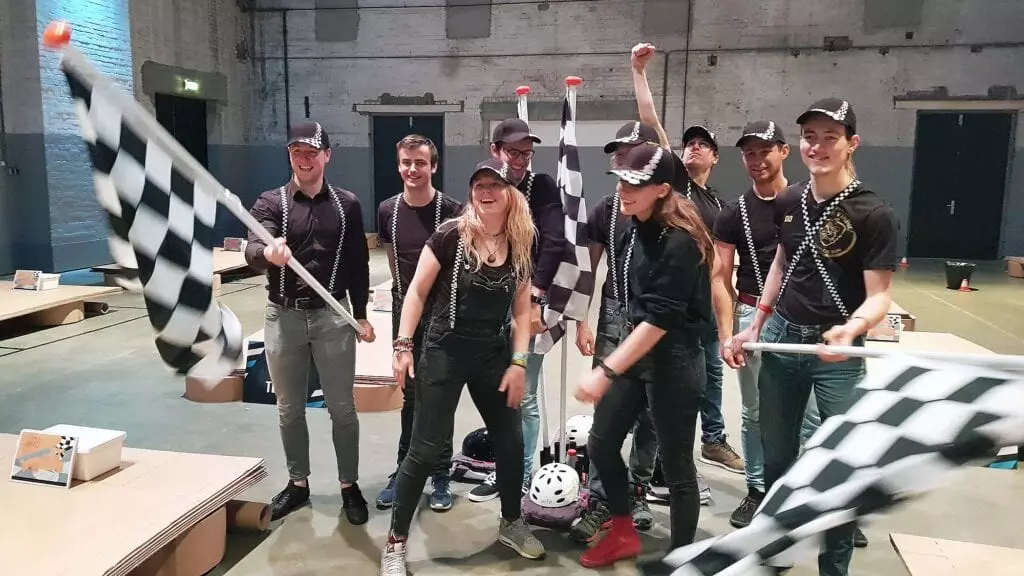
More great podcast episodes.
Season 7 | Episode 1
The L&D Approach That Actually Works
Season 6 | Episode 18
That’s a Wrap!
Season 6 | Episode 17
Work-Life Integration
Season 6 | Episode 16
Laughing it Off
Season 6 | Episode 15
Corporate Volunteerism in Action
Season 6 | Episode 14
Collaborative Play at Work
Season 6 | Episode 13
The Science of Supportive Workplaces
Season 6 | Episode 12
The Power of Being Present
